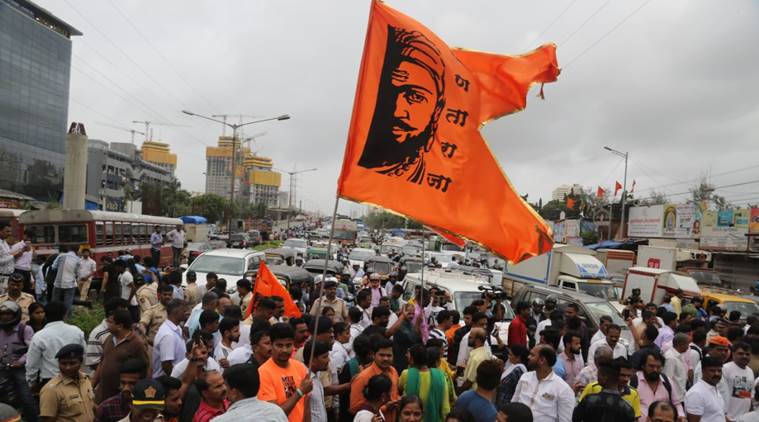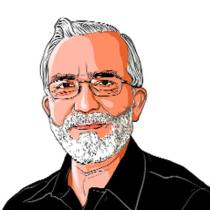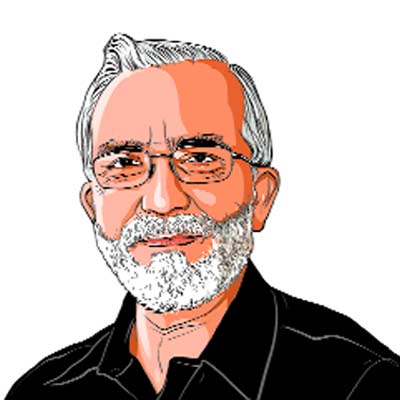The new reservation
It is not a demand for social justice but proportional power-sharing that underlies the new quota agitations

Reservation is increasingly seen as a remedy for the adverse effects of ill-thought out development policies.
The renewed agitation by the Marathas in Maharashtra for reservation is a textbook study of how consensus across the political spectrum does not guarantee reasonable policy. No major political party in the state seems to have any objection to giving reservation to the Marathas and yet a coherent policy appears elusive if not impossible. This is mainly because of the tendency to take recourse to consensus both as avoidance and as competitive populism.
But beyond avoidance, populism and electoral calculations, the stand of all political players appears to be informed by a new logic of reservation that might have deeper implications for both the politics of social justice and our understanding of the constitutional project of ensuring fair (equal) opportunity. This new logic, as can be inferred from “quota” agitations of the recent past, has five components.
But beyond avoidance, populism and electoral calculations, the stand of all political players appears to be informed by a new logic of reservation that might have deeper implications for both the politics of social justice and our understanding of the constitutional project of ensuring fair (equal) opportunity. This new logic, as can be inferred from “quota” agitations of the recent past, has five components.
Reservation is increasingly seen as a remedy for the adverse effects of ill-thought out development policies. In both Gujarat and Maharashtra, in spite of their economies being relatively better, three things have been worrying the people — acute agrarian distress, stagnation in employment growth and distortions in the development trajectory. In this backdrop, for governments, it is easier to talk of reservation than to make a course correction. For the Opposition, too, the reservation discourse is convenient because it allows them to keep subscribing to the consensus over economic policies, avoiding a critical approach to the root causes of the problem. For the agitators, reservation appears as a more immediate remedy compared to long-term structural repair and reform. So, unlike in the late Sixties and again in the late Eighties, when the reservation discourse originated in a deep sense of unfairness of the social system, today’s reservation discourse draws its strength from unfair development policies.
Since the late 1980s, one bone of contention has been capturing the meaning of backwardness. The constitutional mandate of “social and educational” backwardness as the basis for considering special treatment was adopted by the Mandal Commission to arrange different dimensions of backwardness in a hierarchy. Social backwardness was the prime indicator, educational backwardness the secondary indicator and economic disadvantage the third and probably only a concomitant indicator. But arguments in favour of privileging economic backwardness continue to be aired forcefully. The formula propounded by Narasimha Rao to diffuse the controversy included 10 per cent quota for the “poor” from other communities and this idea has received much traction of late.
Increasingly, claims for OBC reservation have come to stand on the logic of contemporary economic backwardness more than backwardness shaped by traditional social injustice. It is here that the logic and meaning of reservation gets altered. Various communities and policymakers seem to be veering towards the idea of linking reservation to economic backwardness. Both in the Patel and Maratha agitations, the central anxiety has been about current economic tribulations. Thus, a claim for reservation on grounds of economic backwardness is seen as justifiable.
But perhaps the more effective justification for claiming reservation is the logic of political strength. Claims are made, and inclusions effected, on the basis of numerical and/or political strength. In Karnataka, the Lingayat demand for reservation was declined by commissions appointed to determine backwardness, the decision ultimately took place considering the clout the community enjoys in the state. The more recent agitations are no exception. While in a democracy it is only natural that different groups would extend their claims through public mobilisations, we have allowed an open nexus between a community’s political strength and the assessment of its claims to backwardness. In this sense, the post-Mandal demands for reservations often reverberate with the politics of the dominant castes in various states. This development has altered the context and texture of the reservation debate.
But perhaps the more effective justification for claiming reservation is the logic of political strength. Claims are made, and inclusions effected, on the basis of numerical and/or political strength. In Karnataka, the Lingayat demand for reservation was declined by commissions appointed to determine backwardness, the decision ultimately took place considering the clout the community enjoys in the state. The more recent agitations are no exception. While in a democracy it is only natural that different groups would extend their claims through public mobilisations, we have allowed an open nexus between a community’s political strength and the assessment of its claims to backwardness. In this sense, the post-Mandal demands for reservations often reverberate with the politics of the dominant castes in various states. This development has altered the context and texture of the reservation debate.
Since numbers matter, the new logic of reservation revolves around the question of how much to whom. Questions of the share of concerned communities in the population, extent of reservation and division of reserved seats among different communities occupy the central space in debates. The first is often shrouded in mystery and mythology. While some states claim to have a somewhat contemporary enumeration, most estimates, including those of the Mandal Commission, rest on the 1931 census. While it is indeed complex to exactly list castes/communities and ensure that there is no overlap, for a society where community/caste based reservation is so entrenched, it is ironical that the state does not care to collect accurate information of the share of different castes.
On the extent of reservation, a growing political consensus appears to be shaping that the 50 per cent limit set by the court need not be upheld in practice. The implicit — and sometimes explicit — reason is that reservation is a right of groups to a proportional share, rather than an enabling provision to make way for equal opportunity. This idea, that all groups should get “seats” in proportion to their strength in the population, is not only attractive in popular imagination but dominates the thinking of social justice activists and policymakers. The word “quota” thus captures the predominant logic that governs the current pro-reservation claims and also supports the idea of sub-quotas to different groups — ostensibly in proportion to their share in the population.
The contemporary logic of the reservation policy precludes judicial intervention. Given the preoccupation with the number-based claims, no external umpiring is required. The kind of boundary-setting the court did in the Mandal case would probably be seen today as unwanted interference. Just as the 50 per cent limit is seen as a nuisance, the question of inclusion in the register of reservation is also supposed to be out of bounds for the judiciary. It is not just impatience with a conservative institution manned by the elites; the judiciary is seen as an external and non-legitimate player because the issue is no more seen as originating in the constitution.
The fundamental shift, then, is not just about competitive claims over public resources such as education and state employment. Instead, reservation is seen as a mechanism falling outside the purview of the normative frame set by the constitution. It is more about a new, emerging power-sharing where proportionality governs.
The writer is co-director, Lokniti and chief editor, Studies in Indian Politics
For all the latest Opinion News, download Indian Express App
More From Suhas Palshikar
- Don’t hold your noseCongress needs to frame a cogent stand on coalitions rather than looking at them merely as tactical necessity ..
- Two speeches, a spectacleAt Nagpur, Pranab Mukherjee lost an opportunity. Mohan Bhagwat seized it ..
- The Karnataka lessonFor BJP, reliance on PM could become a limitation. For Congress, electoral discourse must go beyond identities..








































No hay comentarios:
Publicar un comentario